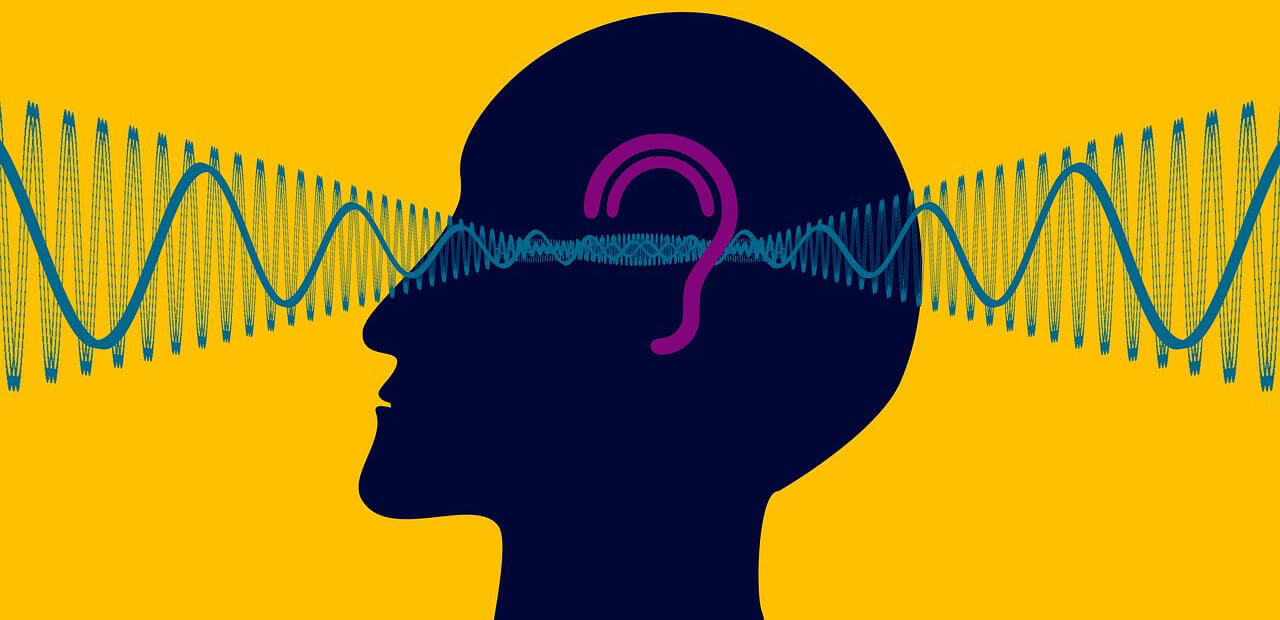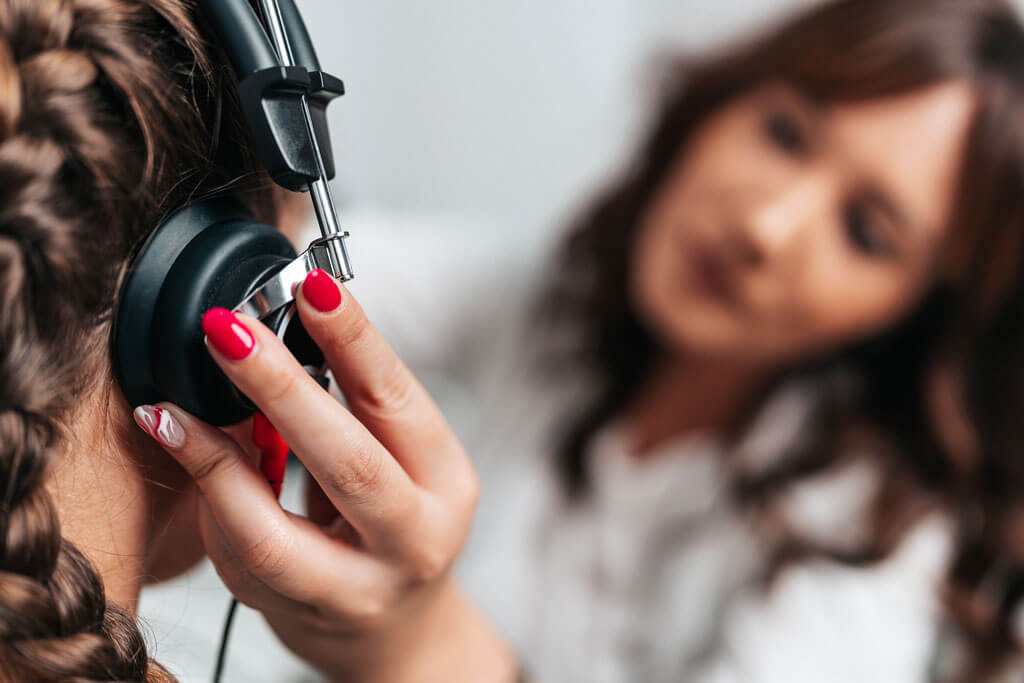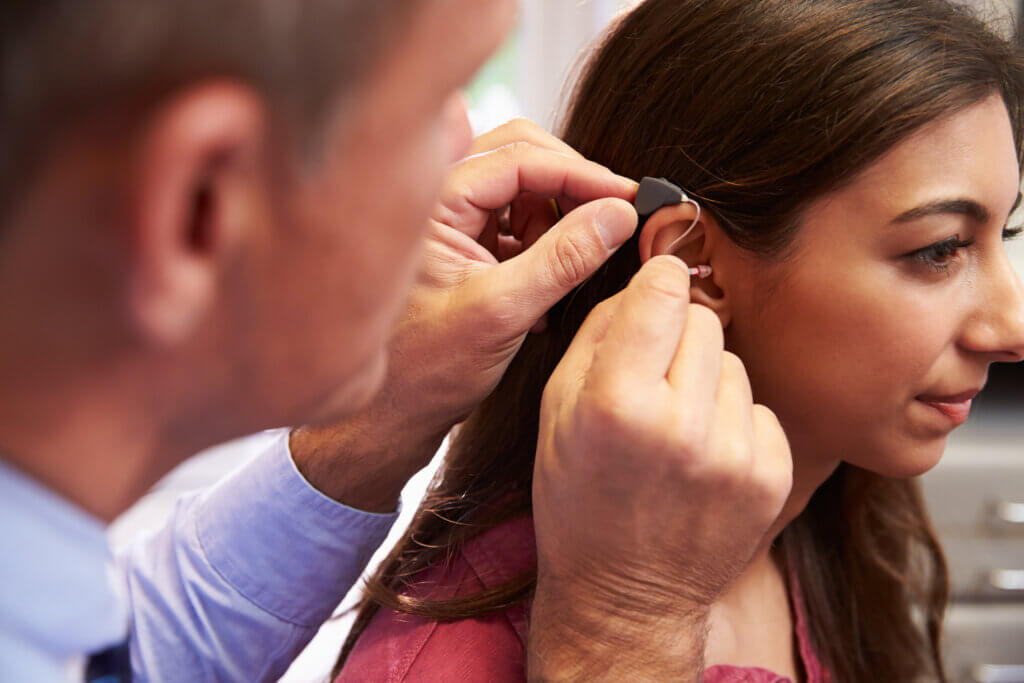
Hearing loss is a prevalent condition that can significantly impact an individual’s quality of life, yet misconceptions surrounding audiometry tests and hearing loss persist. This blog aims to debunk common myths. By dispelling these misconceptions, we can foster a more informed and understanding approach to hearing health.
MYTH 1: Audiometry Tests Are Only For The Elderly:
One prevalent misconception is that hearing loss only affects the elderly, leading some to believe that audiometry tests are unnecessary for younger individuals.
In reality, hearing loss can affect people of all ages due to various factors such as genetics, exposure to loud noises, or medical conditions. Even children are affected by hearing loss with 2 to 3 of every 1,000 children in the US experiencing hearing loss in one or both ears. Regular hearing check-ups are essential for everyone, regardless of age, to detect and address potential issues early on.
In reality, hearing loss can affect people of all ages due to various factors such as genetics, exposure to loud noises, or medical conditions. Even children are affected by hearing loss with 2 to 3 of every 1,000 children in the US experiencing hearing loss in one or both ears. Regular hearing check-ups are essential for everyone, regardless of age, to detect and address potential issues early on.
MYTH 2: If I Hear Well Enough, I Don’t Need a Hearing Test:
Assuming that hearing is adequate simply because there are no noticeable difficulties is a common misconception.
Mild hearing loss often develops gradually, and individuals may not immediately recognize the subtle changes.
Regular audiometry tests provide an objective measure of hearing abilities, identifying issues that might not be apparent in day-to-day activities. This is especially important to note in children as even mild hearing loss can have academic, speech and language development, and even social and emotional based consequences.
Mild hearing loss often develops gradually, and individuals may not immediately recognize the subtle changes.
Regular audiometry tests provide an objective measure of hearing abilities, identifying issues that might not be apparent in day-to-day activities. This is especially important to note in children as even mild hearing loss can have academic, speech and language development, and even social and emotional based consequences.
Myth 3: Hearing Loss Is Irreversible
While the vast majority of hearing losses can’t be completely reversed or cured, treatment options do exist. Hearing aids, cochlear implants, and other interventions can significantly improve hearing abilities, especially when the issue is addressed promptly.
Early detection through audiometry tests is crucial for exploring appropriate interventions and preventing further deterioration.
Some hearing loss, however, can be treated and resolved with medical interventions. For example, hearing loss related to an excess of cerumen, or ear wax, can be treated by having the wax removed by a qualified professional. Additionally, hearing loss related to fluid build-up behind the ear can improve or resolve after the fluid itself resolves.
Early detection through audiometry tests is crucial for exploring appropriate interventions and preventing further deterioration.
Some hearing loss, however, can be treated and resolved with medical interventions. For example, hearing loss related to an excess of cerumen, or ear wax, can be treated by having the wax removed by a qualified professional. Additionally, hearing loss related to fluid build-up behind the ear can improve or resolve after the fluid itself resolves.
MYTH 4: Hearing Loss Only Affects the Ears
Hearing loss is not solely an issue of the ears; it can have broader implications for overall health and well-being.
Untreated hearing loss has been linked to cognitive decline, social isolation, and even an increased risk of conditions like depression. Hearing loss has also been associated with an increased likelihood of falls, a particularly troubling thought especially for the elderly community.
Understanding the comprehensive impact of hearing loss on quality of life reinforces the importance of proactive testing and intervention.
Untreated hearing loss has been linked to cognitive decline, social isolation, and even an increased risk of conditions like depression. Hearing loss has also been associated with an increased likelihood of falls, a particularly troubling thought especially for the elderly community.
Understanding the comprehensive impact of hearing loss on quality of life reinforces the importance of proactive testing and intervention.
MYTH 5: Audiometry Tests Are Painful or Inconvenient
Some individuals avoid hearing tests due to the misconception that they are painful or time-consuming. In reality, audiometry tests are non-invasive and typically painless.
The process involves listening to sounds and responding to prompts, making it a straightforward and comfortable experience. The benefits of early detection far outweigh any perceived inconvenience.
The process involves listening to sounds and responding to prompts, making it a straightforward and comfortable experience. The benefits of early detection far outweigh any perceived inconvenience.
MYTH 6: Using Hearing Aids is a Sign of Weakness
There is an unfortunate stigma attached to using hearing aids, with some perceiving them as a sign of weakness or aging.
Studies examining the stigma related to hearing aids noted most negative perceptions were related to ageism, vanity, and alterations in self-perception. In truth, hearing aids are sophisticated devices that enhance quality of life by improving communication and social interactions.
Additionally, as technology has advanced, many hearing aids are incredibly small and discreet. Embracing hearing aids is a proactive step towards maintaining an active and engaged lifestyle.
Studies examining the stigma related to hearing aids noted most negative perceptions were related to ageism, vanity, and alterations in self-perception. In truth, hearing aids are sophisticated devices that enhance quality of life by improving communication and social interactions.
Additionally, as technology has advanced, many hearing aids are incredibly small and discreet. Embracing hearing aids is a proactive step towards maintaining an active and engaged lifestyle.
MYTH 7: Hearing Loss Only Affects Those Exposed to Loud Sounds
While prolonged exposure to loud noises can contribute to hearing loss, assuming that only individuals with loud professions are at risk is a misconception. Hearing loss can result from various factors, including genetics, medical conditions, and aging.
Regular audiometry tests are essential for identifying the root causes and tailoring interventions accordingly.
Regular audiometry tests are essential for identifying the root causes and tailoring interventions accordingly.
At the Hearing Institute of Ontario, your hearing health is important to us.
Contact our Mississauga, Oakville or Scarborough office for a FREE consultation with our knowledgeable and experienced audiologists, to discuss the best hearing solution for your hearing loss type.
Contact our Mississauga, Oakville or Scarborough office for a FREE consultation with our knowledgeable and experienced audiologists, to discuss the best hearing solution for your hearing loss type.









